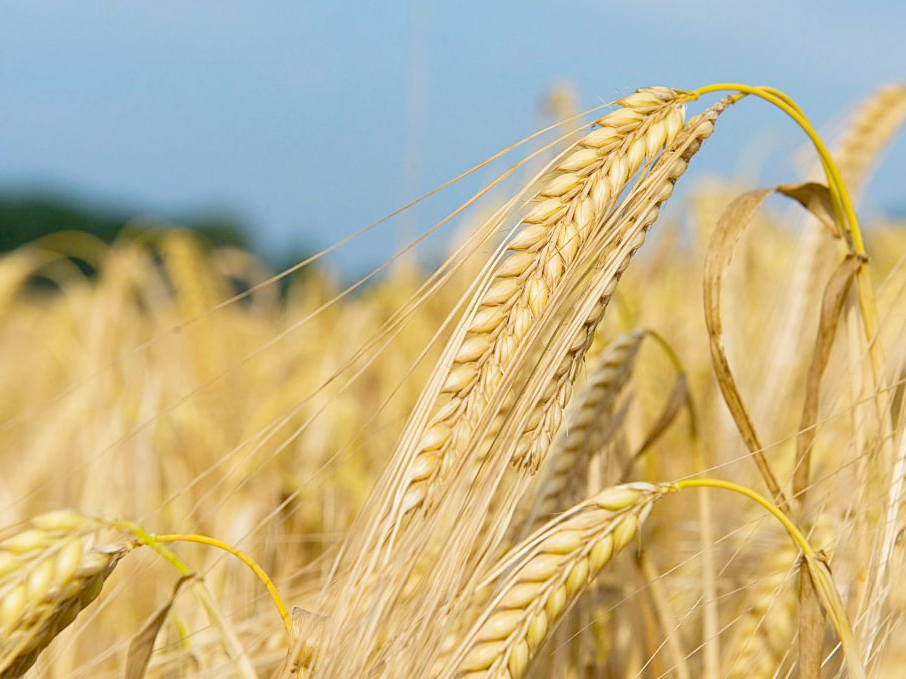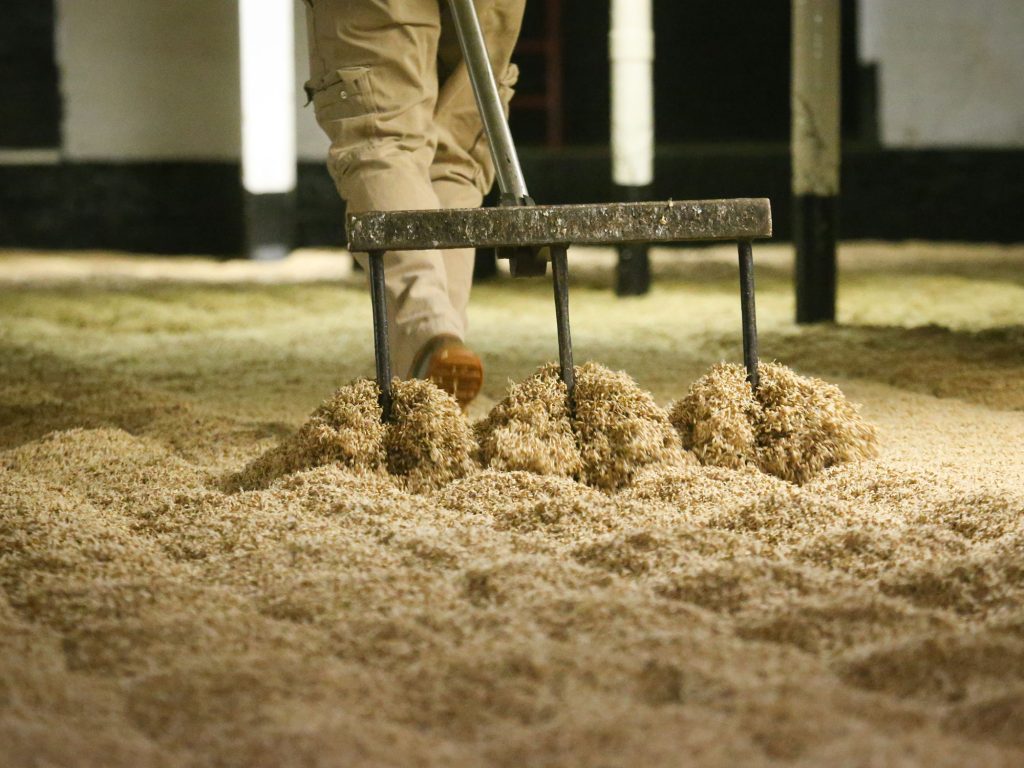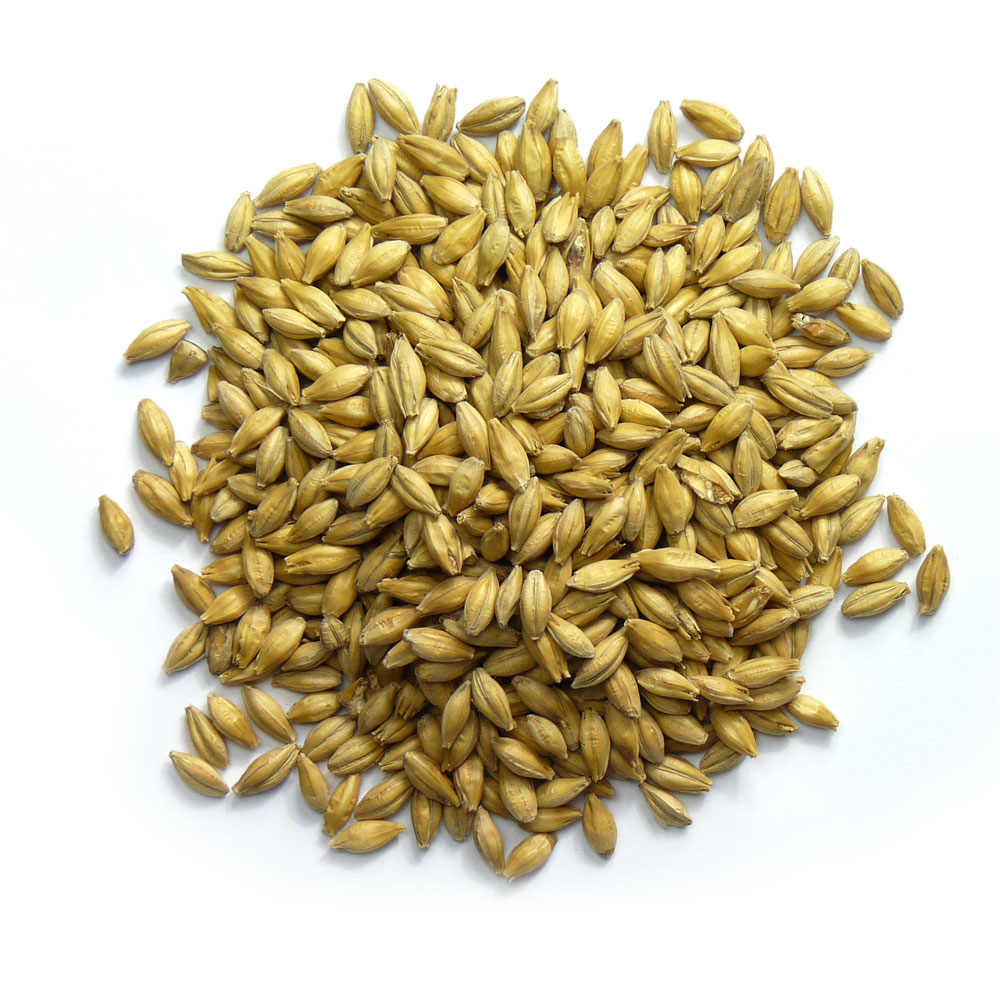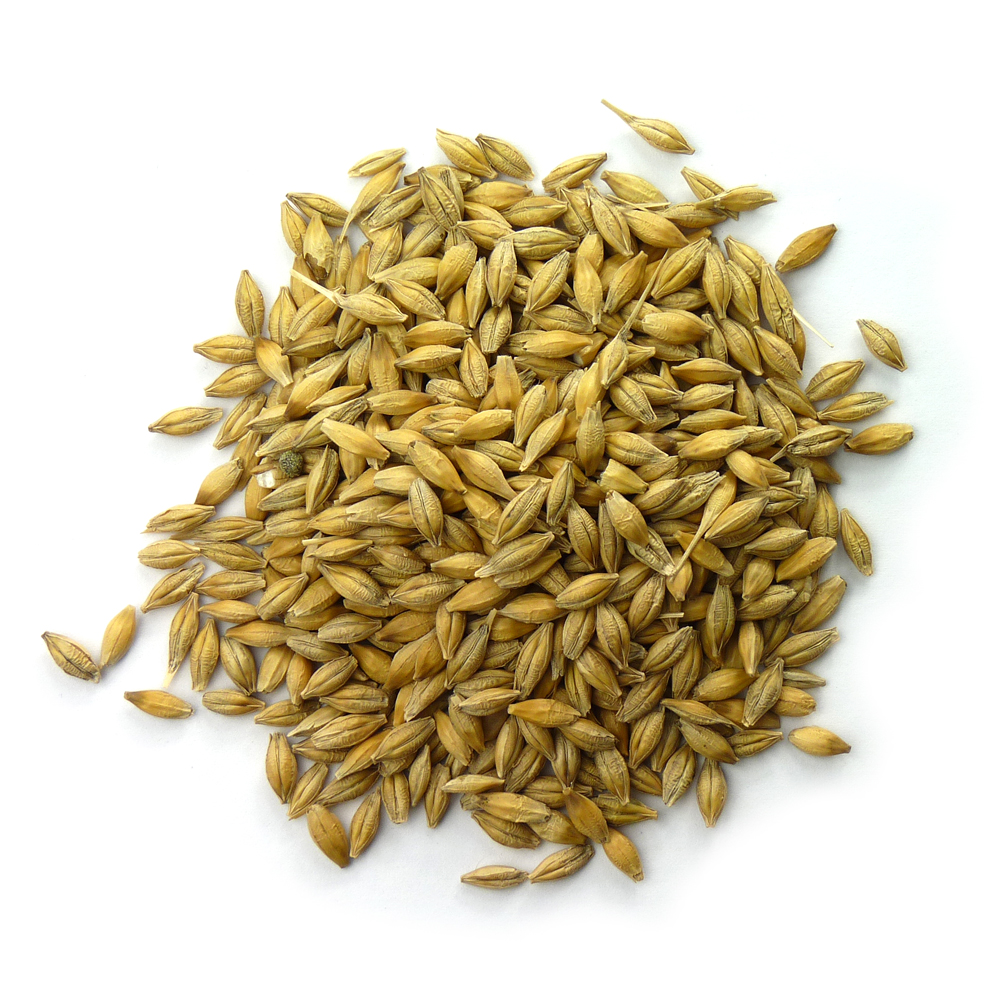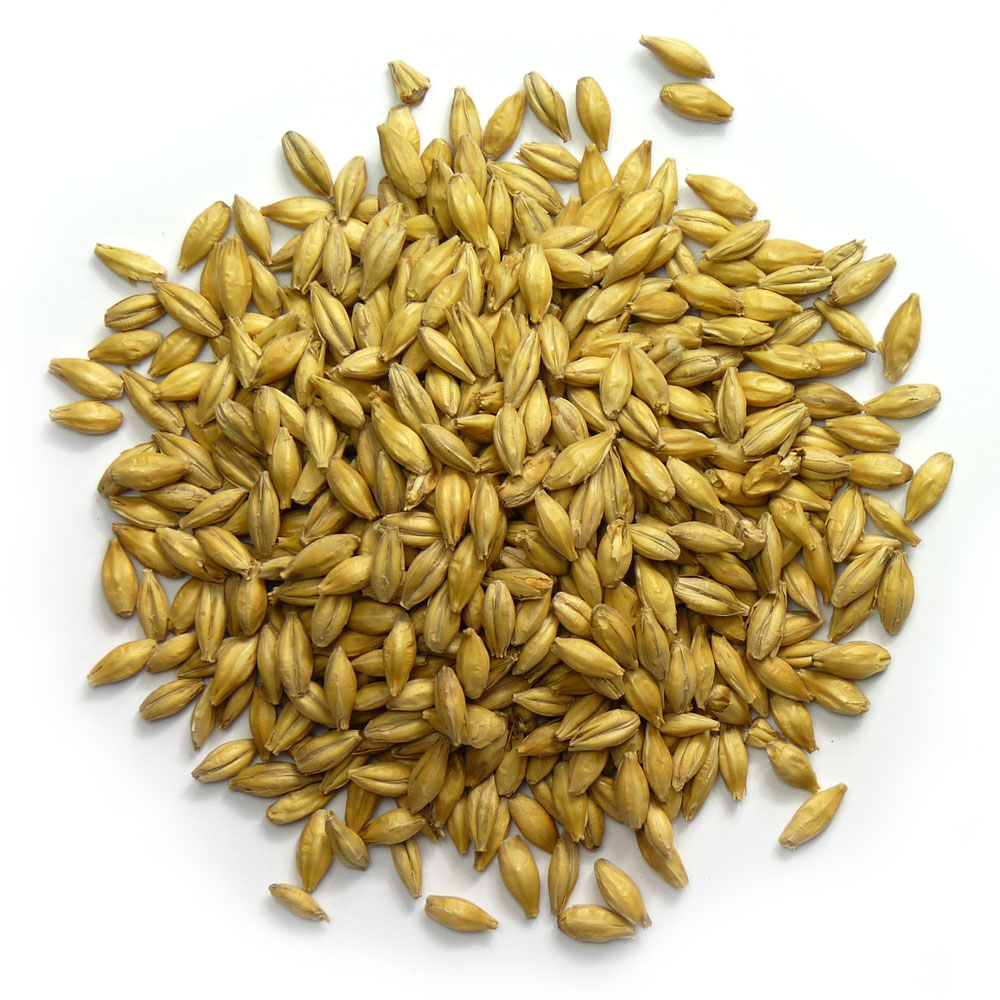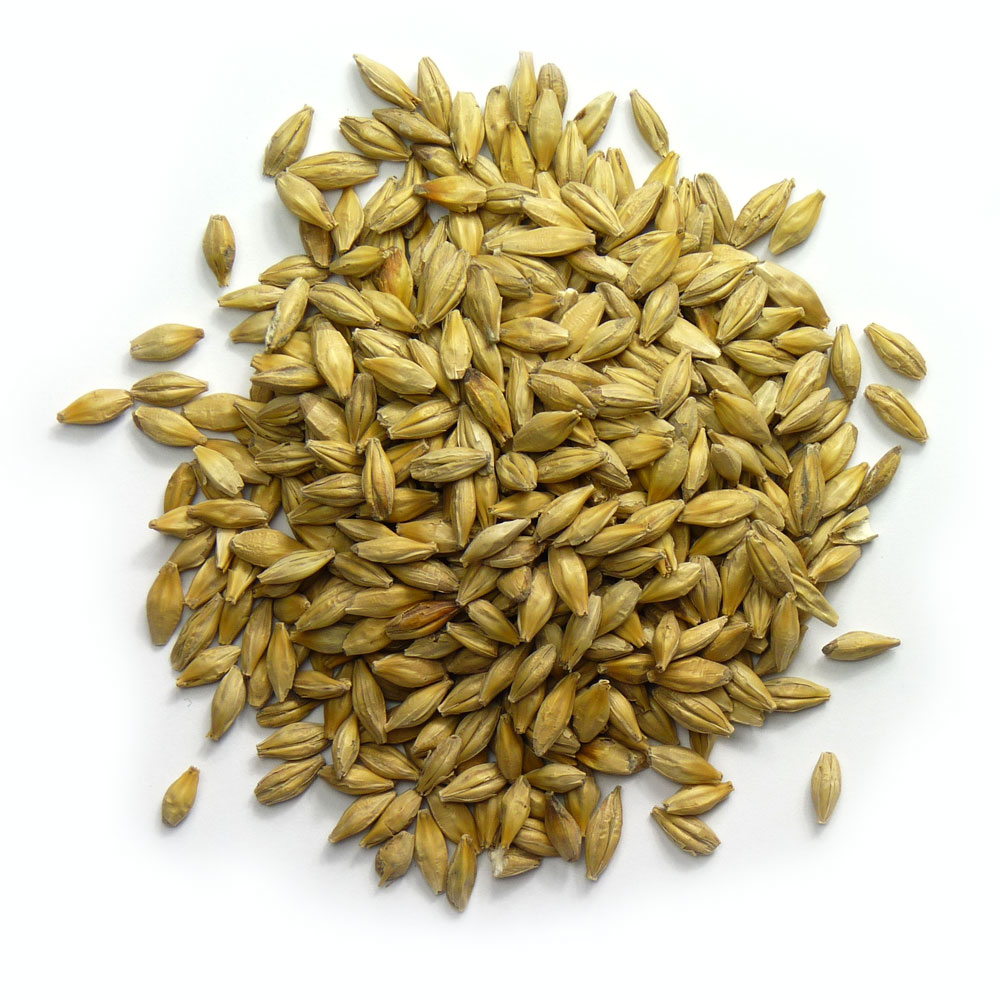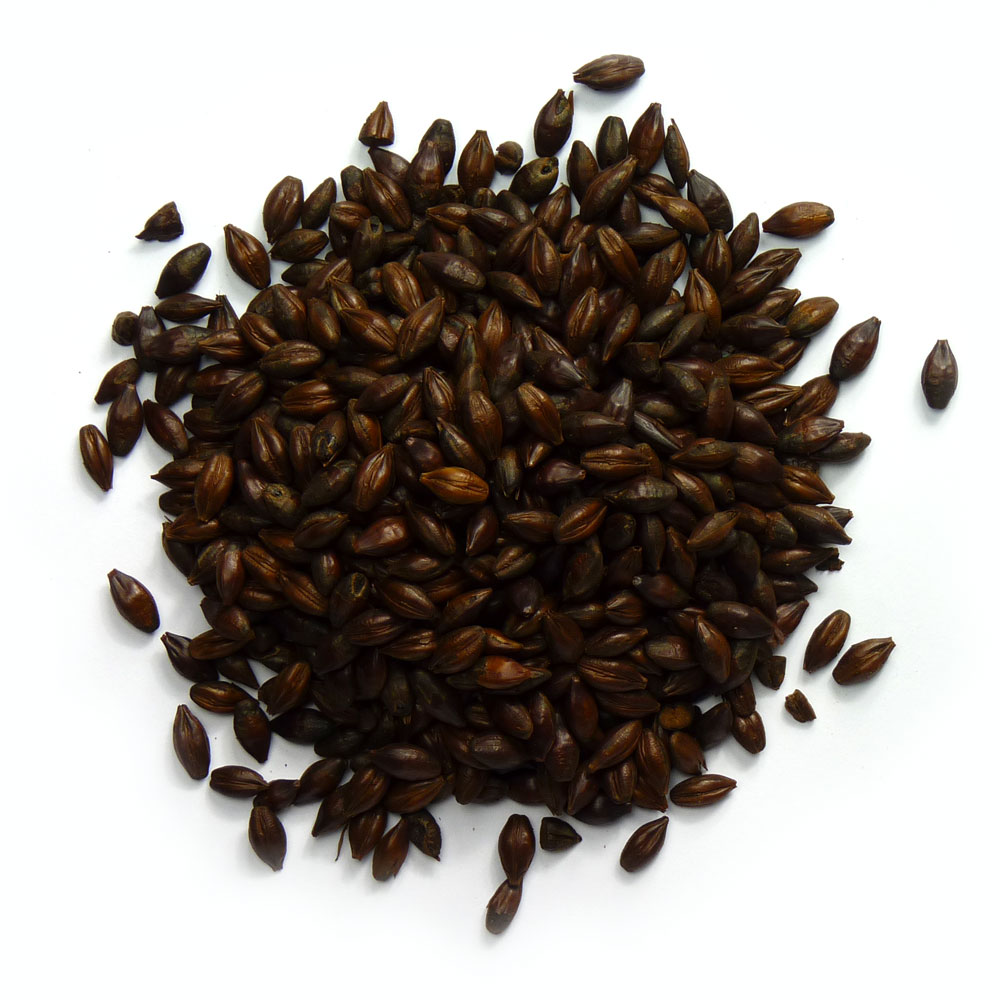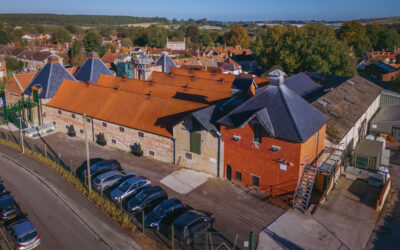Welcome to Warminster Maltings
What is malt?
Malt is grain, mostly barley, which has been artificially germinated in order to ‘kickstart’ the conversion of it’s high starch content into fermentable sugars, which brewers and distillers complete, to produce alcoholic beverages.
We select our barleys by eye, and make our malts by hand. These are the procedures which have prevailed at our malthouses for more than 170 years, and are fundamental to their very special quality.

CLICK HERE FOR FURTHER INFOMATION

CLICK HERE FOR FURTHER INFOMATION
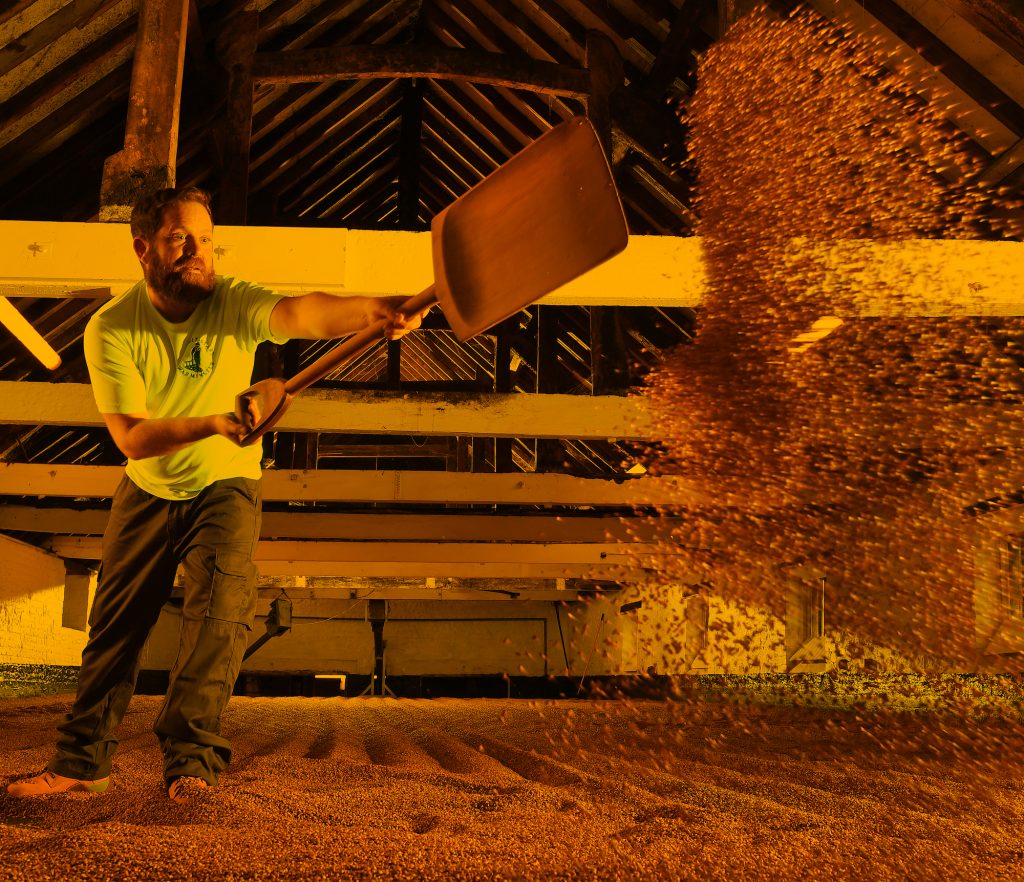
Welcome to Warminster Maltings
What is malt?
Malt is grain, mostly barley, which has been artificially germinated in order to ‘kickstart’ the conversion of it’s high starch content into fermentable sugars, which brewers and distillers complete, to produce alcoholic beverages.
We select our barleys by eye, and make our malts by hand. These are the procedures which have prevailed at our malthouses for more than 170 years, and are fundamental to their very special quality.

CLICK HERE FOR FURTHER INFOMATION

CLICK HERE FOR FURTHER INFOMATION




Sustainable, Resilient and Equitable!
Warminster Malts stand out for their very low carbon footprint. Barley grown sustainably on local Icknield soils, continues to be modified naturally by hand, just as it has been for more than 170 years. Our very traditional and visible procedures deliver both pronounced quality and character.

Sustainable, Resilient and Equitable!
Warminster Malts stand out for their very low carbon footprint. Barley grown sustainably on local Icknield soils, continues to be modified naturally by hand, just as it has been for more than 170 years. Our very traditional and visible procedures deliver both pronounced quality and character.
Floor Made – More Natural, More Sustainable
Like all food processing, slower is better. Our maltings was designed to follow gentle procedures, allowing for the optimum expression of the barley’s properties. Our germination floors are the perfect environment to optimize the ‘modification’ of the barley’s starch into fermentable sugars.
Water comes from our own well, sunk deep below the malthouse into the chalk substrata. The temperature of this water is a stable 52F, winter and summer alike, perfect for the first stage of the malting process. Steeping the barley in water over 3 days is critical to triggering germination, the next stage in the process.
Ventilation and temperature control of the germination floors is vital to the ‘modification’ of the ‘green malt’. We work with the ambient temperatures, closing the window shutters when it is cold, and opening them when it is warm. The layout of the malthouses with its central wedge-shaped courtyard is a blueprint of the classic Victorian maltings. The complex was designed for purpose, exploiting nature’s elements.
Passage of the green malt through the process still depends more on manpower than on fossil fuels. The maltsters are permanently armed with a malt shovel, from steep to kiln, with other hand tools (malt ploughs, turners and levellers) completing the inventory of processing aids. At Warminster, manpower is one of our most valuable, versatile and sustainable resources. It is why our customers refer to our team as “the Malt-Stars of Warminster”.
Robin Appel

Floor Made – More Natural, More Sustainable
Like all food processing, slower is better. Our maltings was designed to follow gentle procedures, allowing for the optimum expression of the barley’s properties. Our germination floors are the perfect environment to optimize the ‘modification’ of the barley’s starch into the sugary substance called maltose.
Water comes from our own well, sunk deep below the malthouse into the chalk substrata. The temperature of this water is a stable 52F, winter and summer alike, perfect for the first stage of the malting process. Steeping the barley in water over 3 days is critical to triggering germination, the next stage in the process.
Ventilation and temperature control of the germination floors is vital to the ‘modification’ of the ‘green malt’. We work with the ambient temperatures, closing the window shutters when it is cold, and opening them when it is warm. The layout of the malthouses with its central wedge-shaped courtyard is a blueprint of the classic Victorian maltings. The complex was designed for purpose, exploiting nature’s elements.
Passage of the green malt through the process still depends more on manpower than on fossil fuels. The maltsters are permanently armed with a malt shovel, from steep to kiln, with other hand tools (malt ploughs, turners and levellers) completing the inventory of processing aids. At Warminster, manpower is one of our most valuable, versatile and sustainable resources. It is why our customers refer to our team as “the Malt-Stars of Warminster”.
Robin Appel

Floor Made – More Natural, More Sustainable
Like all food processing, slower is better. Our maltings was designed to follow gentle procedures, allowing for the optimum expression of the barley’s properties. Our germination floors are the perfect environment to optimize the ‘modification’ of the barley’s starch into the sugary substance called maltose.
Water comes from our own well, sunk deep below the malthouse into the chalk substrata. The temperature of this water is a stable 52F, winter and summer alike, perfect for the first stage of the malting process. Steeping the barley in water over 3 days is critical to triggering germination, the next stage in the process.
Ventilation and temperature control of the germination floors is vital to the ‘modification’ of the ‘green malt’. We work with the ambient temperatures, closing the window shutters when it is cold, and opening them when it is warm. The layout of the malthouses with its central wedge-shaped courtyard is a blueprint of the classic Victorian maltings. The complex was designed for purpose, exploiting nature’s elements.
Passage of the green malt through the process still depends more on manpower than on fossil fuels. The maltsters are permanently armed with a malt shovel, from steep to kiln, with other hand tools (malt ploughs, turners and levellers) completing the inventory of processing aids. At Warminster, manpower is one of our most valuable, versatile and sustainable resources. It is why our customers refer to our team as “the Malt-Stars of Warminster”.
Robin Appel
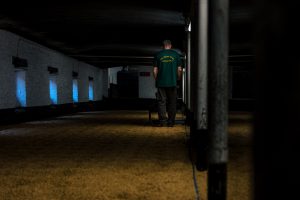
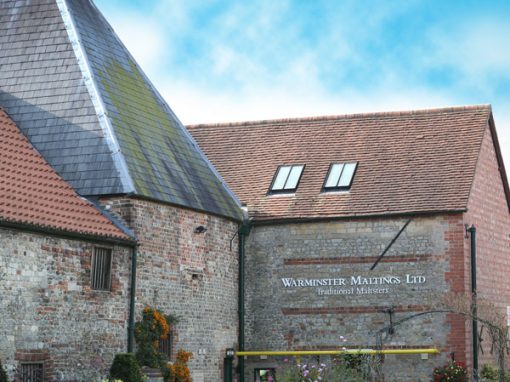
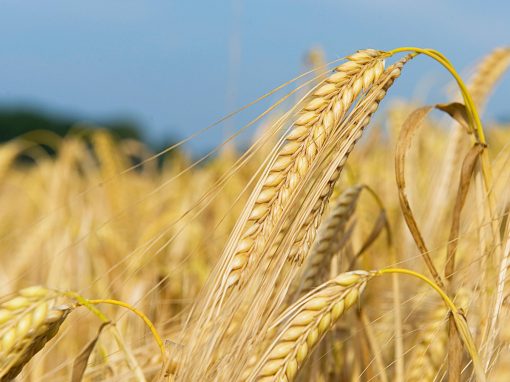
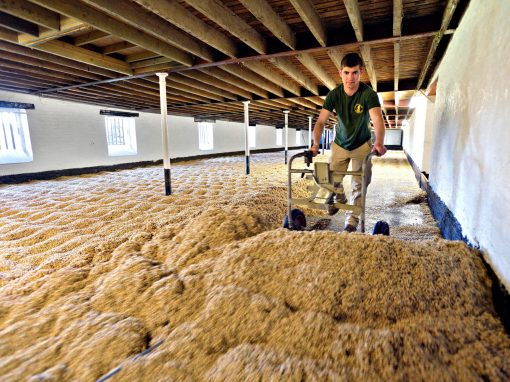
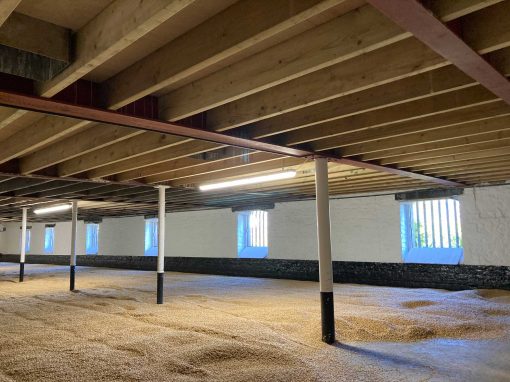
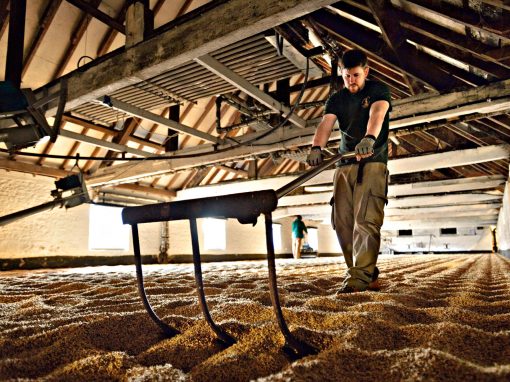
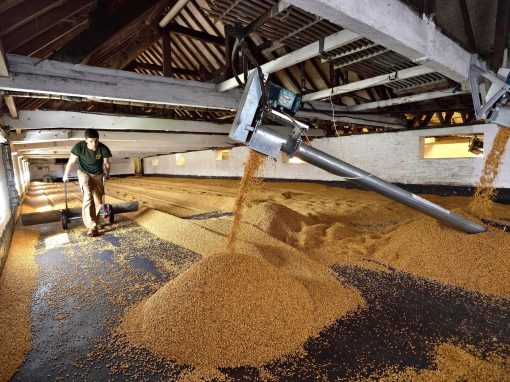

Latest from the Malt-stars News
Edition 57: Friends of Warminster Maltings
Press release In mid-February we issued a new pamphlet showing off our maltings, photographed from the air by a drone mounted camera. This was both...
Press Release – Landmark Maltings
Warminster Maltings is celebrating the completion of itsrepairs to its Grade 2* Listed malthouses built in 1855.200 years ago, many maltings similar...
Edition 56: Friends of Warminster Maltings
Celebrations2025 is set to be an extraordinary year at Warminster Maltings. We celebrate 170 years in the malt making business!! And that’s not all…...
Edition 55: Friends of Warminster Maltings
Harvest Report.On Friday, October 25th, I was privileged to be invited to address a SIBA South West meeting, held at the Ring O’ Bells pub in Bath,...
Edition 54: Friends of Warminster Maltings
What Goes Round…Earlier this summer, the announcement by Marston’s, the brewers, that after 190 years, they are to cease brewing (in order to...
Edition 53: Friends of Warminster Maltings
English Whisky UpdateTwo reports landed in our Inbox at the beginning of June, one of which is the first report from the newly formed English Whisky...
Friends of Warminster Maltings: Newsletter Signup Form






